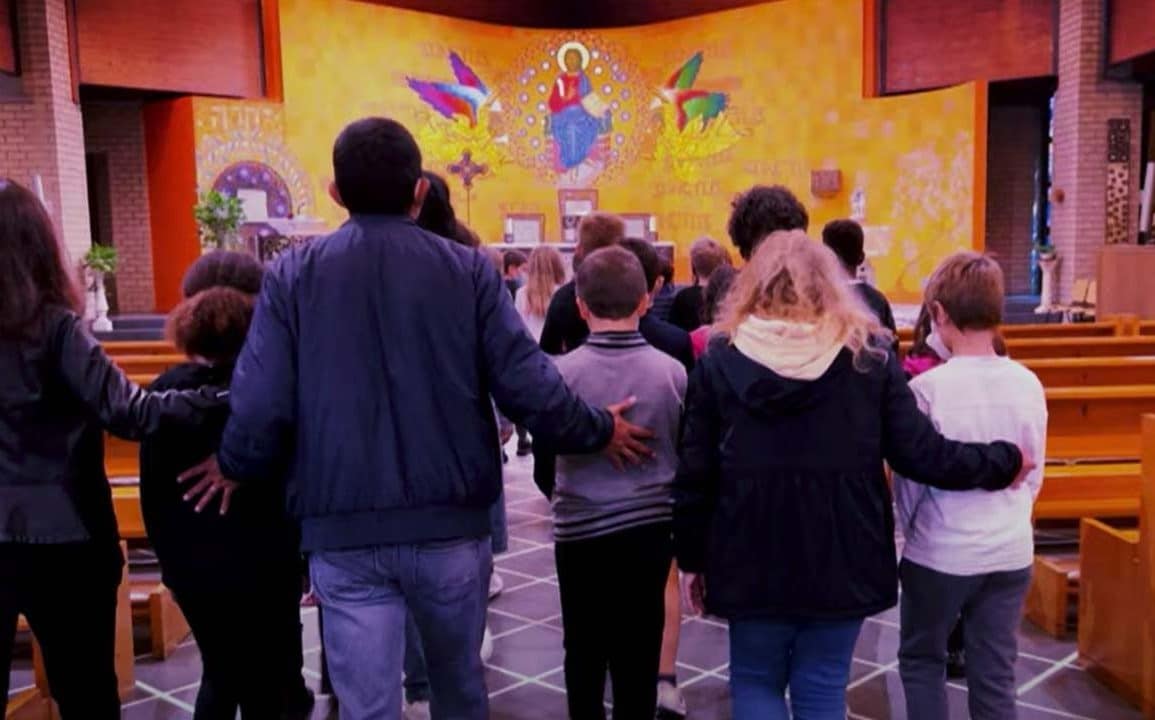The Congregation for Divine Worship and the Discipline of the Sacraments published today, December 13, 2021, the Rite for the Institution of the Ministry of the Catechist. The text, in Latin, will come into force on January 1, 2022.
“Accipe hoc fidei nostrae signum, cáthedram veritátis Christi, eúmque vita, móribus et verbo annúntia” (“Receive this sign of our faith, chair of the truth and of the love of Christ, and proclaim it with your life, your conduct and with the word”) it is one of the Latin forms with which any lay catechist will be instituted as such by his Bishop during a Liturgical Celebration.
After creating formally the Ministry of the Catechist with the Motu Proprio Antiquum Ministerium of last May 10, the Pope approved and published an Editio typica that represents a specific Rite of Institution of Catechists and which will be translated and adapted to the different worldwide Episcopal Conferences.
According to the explanatory letter of the Congregation for Divine Worship and the Discipline of the Sacraments, the Rite will be able to be held during a Mass or a celebration of the Word of God. The Rite’s structure “foresees, after the Liturgy of the Word, an Exhortation (this text lends itself well to be adapted by the Episcopal Conferences in regard to the form in which they wish to specify the role of Catechists); an invitation to prayer; a text of blessing; the handing of the crucifix.” In the letter, Monsignor Arthur Roche, Prefect of the Congregation, also offers clarifications on the Ministry of the Catechist.
Lay Ministry
Hence, explained in the first place is that this ministry is a “stable service that is given to the local Church, according to the pastoral needs identified by the Ordinary of the place, but carried out in a lay manner, as the nature itself of the ministry calls for.” Highlighted above all is that it is “a lay ministry that has as a foundation the common condition of being baptized and the royal priesthood received in the Sacrament of Baptism and is essentially different from the Ordained Ministry received in the Sacrament of Holy Orders.”
It also points out that catechists, “in virtue of Baptism, are called to be co-responsible in the local Church for the proclamation and transmission of the faith, carrying out such a function in collaboration with the Ordained Ministers and under their guidance.”
In the great variety of ways that this ministry presents, two main typologies can be distinguished of the ways of being Catechists. Some have the specific task of catechesis; others, the broader task of participation in the different forms of the apostolate,” such as helping the poor, the sick, forming other catechists, coordinating pastoral activities . . ., he continued.
Not All Must Be Instituted
Also clarified is that, given that this institution has “a strong vocational value, which requires due discernment on the part of the Bishop” and its content being defined by each one of the Episcopal Conferences, “not all those called ‘catechists,’ carrying out a service of catechesis or pastoral collaboration, need to be instituted. “
Concretely, preferably candidates to the diaconate and to the priesthood should not be instituted, regardless of their belonging to Institutes whose charism is catechesis; the religion teachers in schools and those that give a service directed exclusively to members of an Ecclesial Movement, whose function is entrusted by the directors of each Ecclesial Movement and not by the Bishop.
In regard to the accompaniers of the initiation of children and adults, they don’t need to be instituted in the specific ministry, but at the beginning of every catechetical year, they must receive “a public ecclesial mandate with which they are entrusted with this indispensable function.
Role of the Episcopal Conferences
The letter states that the task of the Episcopal Conferences is to “clarify the profile, the role and the most coherent ways to exercise the ministry of Catechists in the territory of their competence, in line with what is indicated in the Motu Proprio Antiquum Ministerium.”
In addition, “adequate programs of formation for candidates must be defined and, lastly, “the communities must also be prepared so that they understand its meaning.”
Requirements
Specified under requirements is the task of the diocesan Bishop “to discern regarding the call to the ministry of Catechist, assessing the needs of the community and the capacities of the candidates.” “Men and women can be accepted as candidates who have received the Sacraments of Christian Initiation and presented freely to the diocesan Bishop a written and signed request.”
Reference is also made to the Motu Proprio Antiquum Ministerium, which states: ”It is appropriate that to the Ministry of Catechist instituted, men and women of profound faith and human maturity be called, who participate actively in the life of the Christian community, who are welcoming, generous and live in fraternal communion, who receive the due biblical, theological, pastoral and pedagogic formation to be attentive communicators of the truth of the faith, and who have already acquired a previous experience of catechesis. They must be faithful collaborators of the priests and deacons, willing to exercise the ministry where necessary and animated by true apostolic enthusiasm.”
Translation by Virginia M. Forrester










